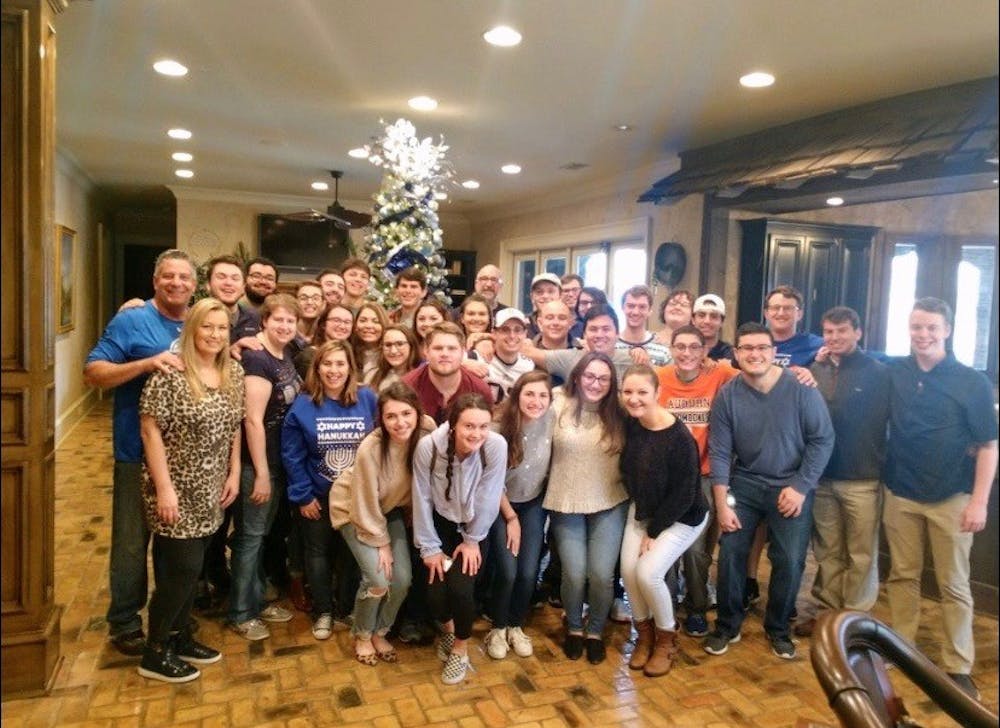The Jewish community is participating in Rosh Hashana and Yom Kippur in different ways this year, but Jewish people are finding new ways to observe these high holidays.
Rosh Hashana and Yom Kippur are two important Jewish holidays starting in the upcoming weeks.
Rosh Hashana begins Sept. 18 and ends Sept. 20. Yom Kippur begins Sept. 27 and ends Sept. 28.
Rosh Hashana means “head of the year” in Hebrew and is the Jewish new year. Rosh Hashana is celebrated by eating sweet foods such as apples and honey to represent the sweet new year.
In the Hebrew calendar, Sept. 18 will mark the beginning of the year 5,781. The Hebrew calendar counts the years from the creation of the world as it is recorded in Jewish tradition.
Yom Kippur is the day of atonement, and people fast to observe the holiday. Jewish people are supposed to focus on praying during this time.
Most members of the Jewish religion fast from sundown to sundown, but some fast from sunup to sundown. People with medical conditions are not expected to fast. After sundown, Jewish people break the fast of Yom Kippur with a big meal.
Jewish people believe on Yom Kippur God reviews the Book of Life and records people considered righteous. Most Jewish congregations attend four or five services for Yom Kippur in the span of three days.
Hillel is a congregation of Jewish Auburn students with about 50 members. It mainly functions as a social group, but it helps undergraduate and graduate students become part of the Auburn and Opelika Jewish community and to meet other Jewish people at Auburn.
This year, Hillel will be attending virtual services at Congregation Beth Shalom in Auburn. There will be services for both Yom Kippur and Rosh Hashana on Zoom and Facebook Live.
Usually, members of Hillel attend services at the temple together, but due to COVID-19 there are no in-person services.
“Not being able to be with the community in person is tough,” said Clio Straus, sophomore in pre-elementary education and Hillel co-president. “Usually we are surrounded by love, but we are not able to have that when we have to sit on our computers alone in our room.”
Straus said she will be fasting for 24 hours. Fasting was hard to manage as a high school student with a busy day full of sports, school and extracurriculars, but in college, it is easier to manage your lifestyle and take things at your own pace, she said.
“Fasting can be hard in the Alabama heat because you are not allowed to eat or drink water, [but it] makes you feel proud to observe traditions,” Straus said.
Yom Killur and Rosh Hashana hold a significant importance for followers of Judaism.
“Yom Kippur is the most important holiday in Judaism because it is how we repent for our sins,” said Eli Dvoskin, Hillel vice president and a junior in computer engineering.
Dvoskin said he will be fasting from the time he wakes up until sundown to observe Yom Kippur.
“It gets tough around 3 p.m. or 4 p.m., especially when you’re passing by restaurants on campus,” he said. “The smell of Chick-fil-A at the Student Center can be tempting.”
Do you like this story? The Plainsman doesn't accept money from tuition or student fees, and we don't charge a subscription fee. But you can donate to support The Plainsman.





